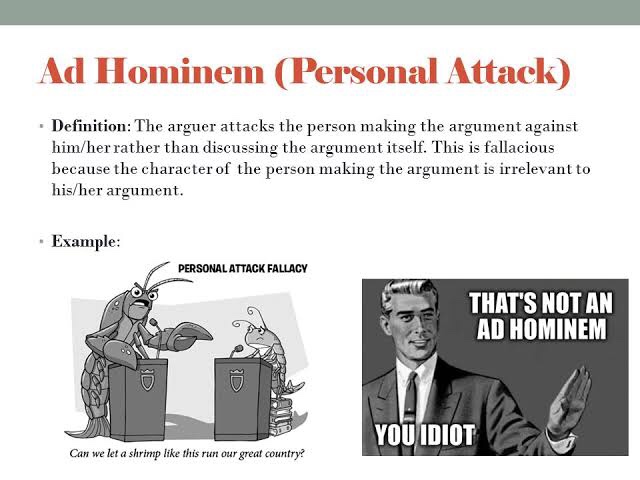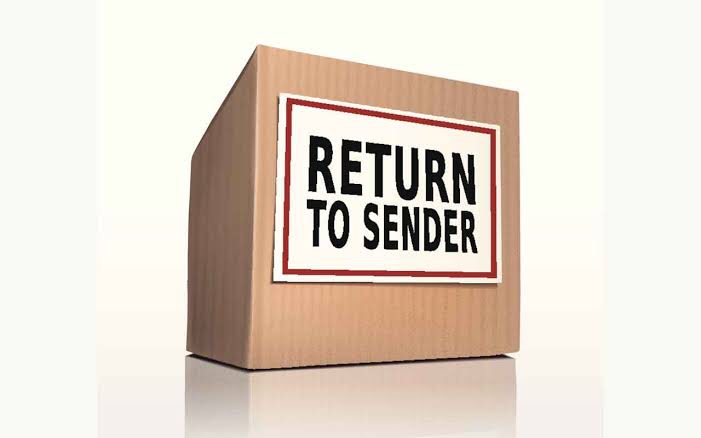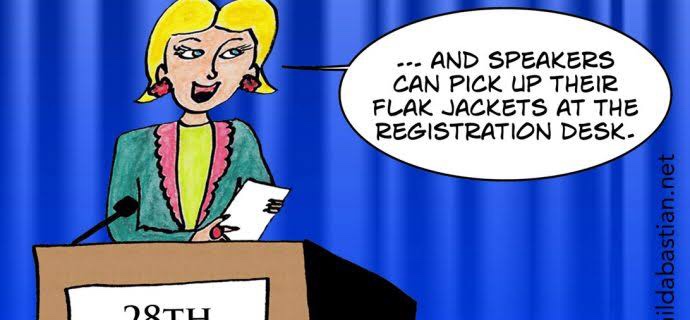My child’s friend Rayne did this interview with Erika about Dyslexia. Erika has had lots of support and intervention over the years so they want to send a message of support to all the kids out there with differences like them. Both Rayne and Erika are passionate about filmmaking and have nueordivergent issues. Rayne is also about to do some work experience at SPELD NSW. This video was made for a school assignment. This is posted with the enthusiasm of both Rayne and Erika who want to help kids feel they are not alone. I’m not sure why I get special thanks at the end of the video as I didn’t help at all!
When the school system fails
Supporting teachers to help students with learning difficulties
As a referral and information officer at SPELD NSW we often get calls from classroom and learning support teachers trying to find extra assistance for children with learning difficulties. It never ceases to amaze me the passion and care exhibited by these teachers. As a former high school teacher I understand that there is never enough time in the day, so for these teachers to go out of their way, often for just one of their students, is uplifting.
This post was inspired by one such learning support teacher concerned about the mental health of a child with Dyslexia in her care. She was so grateful to have found SPELD NSW and the information and support we provide. But as a parent of a child with learning difficulties I was grateful that she went the extra mile for the student.
The phone calls often have an undertone of frustration with the limitations placed upon teachers due to lack of funding and resources for these students. The teachers so desperately want to help these children the best way they can. People enter teaching with a passion to educate and then find themselves in a situation of being underprepared to teach students with learning difficulties. In many ways the system is not only letting down the children with learning difficulties but also their teachers. Even learning support teachers often have no specialist training but find themselves in the role juggling multiple children with a variety of needs.
As a parent of a child with multiple learning difficulties it is also much appreciated. Over the years my daughter has had the privilege of so many teachers who have helped her in her difficult journey. As a parent it would be my dream to hear that my daughter’s teacher has experience and training in learning difficulties, but it is rare to even have a teacher with even the most basic knowledge. As a parent I couldn’t be happier if they are ringing SPELD NSW for help, joining Dyslexia Support Australia and asking for guidance. I love it when teachers admit they don’t know much about Learning difficulties and ask how they can support my daughter more in the classroom. Parents and teachers working together to get the best outcome for the child is always the best approach for children with learning difficulties.
As parents we often divert our blame and anger at teachers. Like every profession there are some teachers who definitely could do a better job. But we also forget about their lack of training and time constraints. We forget that many of them are going the extra mile for our children. As a parent of a child with learning difficulties and a teacher I can see the issues from both sides.
My daughter will never forget her year 3 teacher who built her self esteem back up when she was at her lowest. He came to watch her tutoring sessions. He would take home her stories and type them up for her. He listened and he learnt. At the end of the year when I whole heartedly thanked him for the wonderful job he did he thanked me and my daughter for teaching him so much.
We need to support our teachers to get the best outcome for students. SPELD NSW is advocating for improved teacher training and targeted funding for learning difficulties. Easily accessible and appropriate specialist support should be provided in all schools for those with specific learning difficulties. Teachers need more training and greater support in assisting students with learning difficulties and in evidence based methods for reading instruction. The system is not only letting students down but letting our teachers down.
New review suggests education schools are failing to train new teachers to teach reading effectively
New review suggests education schools are failing to train new teachers to teach reading effectively
New review suggests education schools are failing to train new teachers to teach reading effectively
The gift I would like to return
There is a big theme within the Dyslexia community to promote Dyslexia as a gift. Whether being dyslexic comes with strengths remains a controversial issue that is under researched. There is some limited research that supports improved visual spatial processing strengths in individuals with dyslexia. People with dyslexia are certainly overrepresented in the arts and the business world but it remains to be seen whether dyslexia confers any extra benefits. It may be that faced with difficulties at school forces the individual to develop a level of resilience to failure and other coping mechanisms that allow them to succeed in their chosen field. Children may also seek refuge in the arts and creativity when confronted with the stress of the classroom.
I think the Dyslexia as a gift approach has a number of issues. Please don’t shoot the messenger. I’ve lived the Dyslexia roller coaster for a number of years and I hear all the stories.
“Dyslexia comes with gifts” is not backed by a lot of research evidence. I do love my research and for me to jump on the Dyslexia is a gift bandwagon would make me look like a hypocrite.
The “Dyslexia is a gift” line is utilised as a marketing tool for non evidenced based treatments. As a parent it is easy to see how selling Dyslexia as a gift is easy to swallow. I would love to think that my child has a special gift because she has Dyslexia. Because it has been a hard road. It’s a roller coaster ride and I would really like that ride to be a little bit fun. I need to believe it is for a purpose. This thought allows parents to be easily manipulated and sold woo. Some of these alternative therapies with a “gift approach” show an initial boost due to self esteem but they don’t solve the child’s illiteracy. The reality is remediation of reading for most children takes a lot of hard work. This may take years. There is no quick fix.
Many children with Dyslexia will struggle their entire life, particularly if they don’t receive appropriate intervention. I’ve heard if children as young as 6 wanting to kill themselves because they were struggling at school. Tell me how that is a gift? Selling Dyslexia as a gift can send a confusing signal to a child who is already struggling. Because it is just another point of failure for them. “I’m suppose to have a gift but I’m good at nothing.”
It is hard to advocate for your child in the school system demanding your child’s disability be addressed if there is this storyline of it being a gift. The message that it is sending is confusing for children, parents and teachers.
The gift approach promotes the idea that they will be no good at reading but that’s ok because they can just become an artist, or a tradesmen or run their own business. Literacy is a necessity for so many aspects of life. It is essential for the great majority of professions. We should always have the highest expectations of children. We should always strive to teach kids to read. The evidence shows very few children are actually unable to learn to read. Literacy should always be the goal. Literacy opens doors and illiteracy slams those doors shut and throws away the key.
All children have strengths. The most important thing is that your child finds their strengths and utilises those strengths to help overcome their weaknesses. It is also important for strengths and interests to be nurtured to allow the child to have something that they can be good at. This is extremely important to maintain self-esteem. This is important for both my children. For my struggling child this is 100 times more important!
My daughter just turned 14. She got a green screen and studio lights for her birthday as she has shown an interest and talent in film making and acting. She has repeatedly expressed appreciation for us supporting her passion. She is lucky enough to also have the support of extended family and friends. A friend’s mum who is also Dyslexic has offered to take her into her workplace and show her how green screens work.
She has been off sick for a few days since her birthday. She has spent her time reading the book I bought her for her birthday “Film making for teens.” This book has a significant amount of terminology. She can read it because she has received appropriate remediation. Being literate is helping her follow her passion and achieve her dreams.
All children need role models and that is even more important on the days when their difficulties seem insurmountable. Children need to know that they can be successful with determination and hard work. There are many successful adults with dyslexia who have overcome the odds and not only survived schooling but thrived.
Unlike some professionals I don’t see a problem with this. I don’t see a problem with a famous person saying “I’m Dyslexic and struggled at school and look what I have achieved.” Kiera Knightly is one of my daughter’s favourite famous Dyslexics. We have a routine in our house when things get hard. We ask my daughter “What did Kiera do to succeed?” My daughter has a standard answer. “She worked really hard, practised a lot and learnt how to read!”
I do see a problem when we label every creative thinker, like Einstein , as Dyslexic when there is no evidence for it. But a child looking up to successful adults is what all children do. My daughter sees being an author as a possible career for her because of all the wonderful books she has read written by Dyslexic authors like Jackie French. This is no different to the interview I saw yesterday with Ashleigh Barty. She talked about being an Aboriginal child and the importance of Evonne Cawley as an Aboriginal role model. Nit every Aboriginal kid is going to be number 1 in something and neither is every dyslexic child. But it is important to see that it is possible despite hardships.
“As a child, I was called stupid and lazy. On the SAT I got 159 out of 800 in math. My parents had no idea that I had a learning disability.” Henry Winkler (Actor, producer, writer)
“I was one of the ‘puzzle children’ myself — a dyslexic . . . And I still have a hard time reading today. Accept the fact that you have a problem. Refuse to feel sorry for yourself. You have a challenge; never quit! ‘ Nelson Rockefeller
“I barely made it through school. I read real slow. But I like to find things that nobody else has found, like a dinosaur egg that has an embryo inside. Well, there are 36 of them in the world, and I found 35. ”Dr. John R. Horner (American paleontologist)
“My learning disabilities pushed me to discover talents that I wasn’t aware of having. It has also led me to develop products to help others who struggled through school as I did.” – Reyn Geyer, inventor of Nerf balls & Twister
Before my daughter’s assessment for dyslexia she thought she was stupid and dumb. She used to verbalise these thoughts frequently and had been called such by bullies and unfortunately by teachers. She was frequently told she could do a better job, try harder and put more effort into her reading and writing. She logically blamed herself. Dyslexia gave the problem a name. She could externalise the blame and was able to identify with role models in the community. Today she says school is hard but being dyslexic makes her feel special and unique. She describes it in one word as awesome!
She has moved towards a thought process that it is ok and a little bit special being different. She has also been empowered by joining in activities with the dyslexic community and finding kids who think the same way and have school struggles. She is lucky enough to have some wonderful friends who enjoy listening to her creative stories at lunch time. One friend said that she has had an interesting life and should write a book! High School saw her make some very special friends with learning difficulties and she said that for the first time ever she feels like she belongs. Her friends agree having a friend who also has Dyslexia is the biggest thing that helps.
“The single most important implication of research in dyslexia is not ensuring that we don’t derail the development of a future Leonardo or Edison; it is making sure that we do not miss the potential of any child. Not all children with dyslexia have extraordinary talents, but every one of them has a unique potential that all too often goes unrealized because we don’t know how to tap it.” Maryanne Wolf (2005)
I love my daughter and have been there for her every step of the way.
Would I prefer she didn’t struggle with many aspects of school? Yes.
Would I prefer she didn’t vomit before school from anxiety? Yes.
Would I prefer I didn’t have to fight for her to get the best possible outcome? Yes.
Has it broken my heart to see her struggle? Absolutely.
Would I like to return the gift of Dyslexia and get a refund? You bet I would!
Crying foul in the phonics debate. The influence of vested interests.
 The anti-phonics advocates, like a bunch of lemmings lined up to jump off the cliff, like to dismiss phonics advocates valid arguments and research with the cry of commercial interests or evil right wing influences. Some even refuse to even read research based on unproven vested interests.
The anti-phonics advocates, like a bunch of lemmings lined up to jump off the cliff, like to dismiss phonics advocates valid arguments and research with the cry of commercial interests or evil right wing influences. Some even refuse to even read research based on unproven vested interests.

Twitter quotes… have a go yourself and search for vested interests phonics, think tank phonics, right wing phonics…never ending! Some tweeters pop up repeatedly.
“So, a right-wing libertarian think tanker on the cover of #researchEd magazine? No thanks….”
“Some years back reading became “phonics”. Pushed by linked right-wing “think tanks” and vested interests selling phonics programmes.”
So let’s get my vested interests out of the way first.
Someone even asked me if I truly had children’s interests at heart implying that I had some other vested interest. She then blocked me when I requested an apology. That individual actually has presented at seminars for a commercial program!
I do not gain any commercial interest from any product. All my advocacy is unpaid and has cost me money to advertise my Facebook pages and take time off work in the past to attend seminars which are not tax deductible. I am a founding member of Code Read Dyslexia Network (a charity). I am a board member of SPELD NSW. I run a volunteer support group Dyslexia Support Australia. My children are too old to benefit from primary schools teaching explicit systematic phonics and the phonics screening check (PSC) is 7 years too late for my daughter.
So according to the definition do I have vested interests?
“If you have a vested interest in something, you have a very strong reason for acting in a particular way, for example to protect your money, power, or reputation.” (Collins Dictionary)
The answer to that is probably yes as I have put myself out there strongly advocating and I will certainly look the fool if proven wrong. I have some sort of reputation to protect.
Do those crying vested interests have any investment that influences them?
Those who have built a career around supporting an approach to teaching reading that no longer follows current research certainly have a lot invested. Particularly so in the case of very public supporters with big reputations. There are many University teacher educators who are very public and have gone so far as selectively using evidence to support their position in news and teaching publications.
If the PSC gets implemented and shows significant deficiency in phonics teaching and then leads to an increase in reading outcomes they have big reputations on the line. Not only that but they have to sleep at night with the understanding that the thousands of teachers they have trained over the years could have been teaching kids to read better.
This certainly leads to a degree of cognitive dissonance when faced with a growing body of research. 
Teachers who have long careers have a vested interests as they need to believe that what they are doing is the best possible for the students in their care. To finally admit that probably you could have been doing a better job is a hard pill to swallow. Many never get to see the long term outcome with “balanced literacy” often giving the impression of reading but failing when reading becomes more complex.
I know personally that since I have learnt and studied so much about learning difficulties that I now see, over a decade later, the faces of those kids I could have helped better. Those kids in my mind are what led me to advocacy work.
One of my fellow admins of Dyslexia Support Australia, like many of our teacher members, was led down the path to questioning her teacher training when her own child struggled to learn to read. She has since re-educated herself with further training and is a self confessed literacy research geek. Explicit systematic phonics and the PSC is over a decade too late for her child.
Is is fair to attack people’s comments based on their involvement in a phonics program?
One of the biggest catch cry’s in the phonics debate is most certainly about money making phonics programs. The majority of the stories I have heard about people designing phonics programs is that these programs have grown out of a need and desire to help children learn to read. I will admit I also know of exceptions and these “business owners” are obvious in their behaviour in decrying other programs and supporting only their methods.
I know that many Thrass advocates are quick to cry Multilit on one hand whilst singing the praises of the Thrass creator on the other.
Marie Clay gets quoted often and held up like some sort of god by her supporters. But not once have I had her research dismissed on the basis of her involvement in the Reading Recovery program. A program that was costing over $50 million a year in NSW alone. I’m not sure if during her life Marie made a cent out of Reading Recovery and I don’t care. I’m more concerned about her research validity.
Despite their vast differences Reading Recovery and Multilit have many parallels in their back story. Born out of research with a passion to help children learn to read. The big difference being Multilit continues to change and develop with ongoing research and feedback from teachers and parents.
Let’s not forget the huge amount of income that is being made in schools right now from companies selling “balanced literacy” resources and programs. They have a significant amount of cash and reputation to lose. Some are even moving into the phonics market.
Let’s not forget that no one is actually advocating the exclusive use of a particular program. I have seen the accusations that if a kid fails the phonics check they will be pushed into Multilit. This is an unfounded claim and there is no such evidence of a government pushing one program in England.
Many would like to see every teacher trained in explicit systematic phonics well so that they do not need to follow or use a particular program. Phonics teaching does not require fancy resources. My daughter was taught with a very old set of alphabet letters. Programs are really only as good as the teacher implementing them. Phonics programs exist because of the inadequate training of teachers. They are a very easy solution for a school to implement an across the board approach to teaching phonics.
Many creators of phonics programs and remedial tutors have expressed that nothing would make them happier than, after decades of advocacy, being out of a job.
Is it fair to dismiss a person’s views based on their political leanings or where the cash for their research comes from?
Politics should be left out of the debate and I have addressed this in previous blog. https://dekkerdyslexia.wordpress.com/2019/02/22/mind-the-gap/
My brother in law is a medical stroke researcher and he spends a lot of his time trying to fund his research. I’ve seen him writing research proposals on Christmas Day lying on the floor after back surgery. This is an on going battle that all researchers face. Does where the cash cow come from influence his work? I doubt that very much.
Are medical researchers possibly bias by drug company money? Undoubtedly! Freebies by drug companies has been scaled back in recent years due to such concerns.
But do people refuse to read medical research by a researcher based on their income source? I think not. Declaration of conflicts of interest are a part of any good research. Complete lack of bias in research just does not happen. This is human nature. Researchers are trained how to read and identify valid research and how to identify bias. They don’t validate research based on the author but on reading the research.
The Ad hominem personal attacks and knee jerk right wing, commercial program cries need to end. We need to start listening to the research evidence and questioning how we can drag up Australia’s growing tail of struggling readers. One child who could have been taught to read left suffering due to illiteracy is one child too many. I know because that one child was mine.


